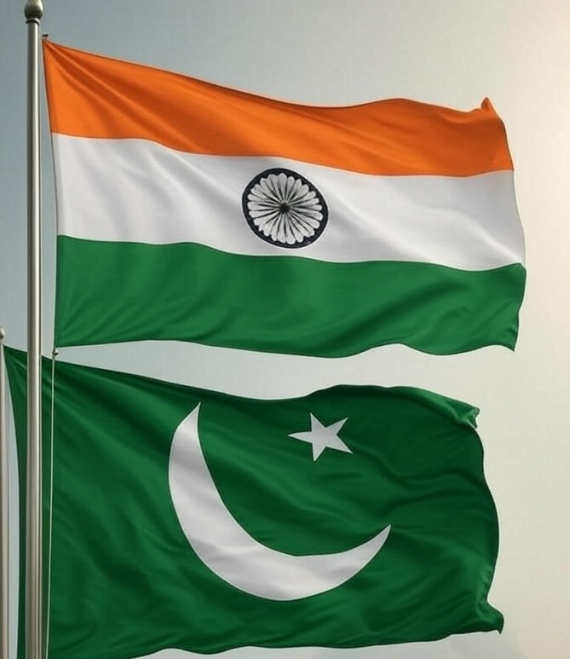
Pakistan has once again raked up the issue of the Indus Water Treaty, accusing India of unilaterally suspending the agreement and violating international commitments. In a fresh attempt to internationalize the matter, Pakistan’s Permanent Mission to the United Nations, along with the Muslim American Leadership Alliance, organized an event focusing on the Indus Water Treaty and Pakistan’s ongoing water crisis.
During the event, Pakistan’s Deputy Permanent Representative to the UN, Usman Jadoon, claimed that weakening of the treaty could aggravate food insecurity, displacement, and humanitarian crises. He stressed that such consequences would affect women, children, and the poor the most. Pakistan also accused India of “weaponizing water” and using it for political leverage, calling it a breach of international obligations that could destabilize regional peace and stability.
However, these accusations come from a country widely criticized for sponsoring terrorism across borders. India has repeatedly reminded Pakistan that terrorism and cooperation cannot go hand in hand. Following the recent terror attack in Pahalgam earlier this year, which India blames on Pakistan-backed groups, New Delhi sent a clear message by intensifying counter-terror operations. Through Operation Sindoor, Indian forces struck Pakistani terrorists in Pakistan-occupied Kashmir (PoK) and also curtailed water flows to Pakistan—an act that left Islamabad increasingly restless over the future of the treaty.
The Indus Water Treaty, signed 62 years ago in 1960 with World Bank mediation, allocates the waters of the Indus system between India and Pakistan. Under the treaty, India receives only 19.5% of the water while Pakistan is allocated nearly 80%. Interestingly, India utilizes only about 90% of its allocated share, with the remaining waters flowing downstream into Pakistan.
The treaty divides the rivers into eastern and western categories. The eastern rivers—Ravi, Beas, and Sutlej—are allocated to India, while the western rivers—Indus, Jhelum, and Chenab—are reserved primarily for Pakistan. On average, nearly 135 million acre-feet of annual water from the western rivers flows into Pakistan. Despite this highly favorable distribution, Pakistan has repeatedly accused India of denying water and undermining the treaty, while India argues that it has strictly adhered to its commitments.
Analysts in New Delhi point out that Pakistan’s renewed rhetoric on the Indus Water Treaty is more about political posturing than genuine concern. Pakistan’s domestic water mismanagement, outdated irrigation practices, and lack of infrastructure have worsened its crisis. Instead of addressing these internal challenges, Islamabad continues to blame India for its water shortages.
Earlier this month, Pakistan’s Prime Minister Shehbaz Sharif also raised the issue at the Shanghai Cooperation Organization (SCO) Summit, but his remarks gained little traction among the member states. With no substantial international support forthcoming, Pakistan has been repeatedly using different platforms to highlight the Indus Water Treaty issue, hoping to draw attention to its grievances.
For India, the message remains clear: as long as Pakistan continues to sponsor terror activities, it cannot expect business as usual when it comes to bilateral agreements. The Indus Water Treaty, once hailed as one of the most successful water-sharing agreements in history, has now become another flashpoint in the tense relations between the two neighbors.
Pakistan’s repeated warnings and accusations are being dismissed in New Delhi as “hollow threats” and “political gimmicks.” Experts believe that Islamabad is playing the victim card to gain global sympathy while diverting attention from its own role in fostering instability in the region.
As the water issue resurfaces once again, the future of the Indus Water Treaty remains uncertain. What is certain, however, is that Pakistan’s attempts to portray India as an aggressor are unlikely to gain much international traction, especially when its own record on terrorism and regional peace remains deeply tainted.
Disclaimer:
This article is based on publicly available information and media reports. It is intended for news and informational purposes only. The views expressed do not represent any official stance, and the website is not responsible for the accuracy of third-party claims. Readers are advised to cross-check facts from reliable sources.




